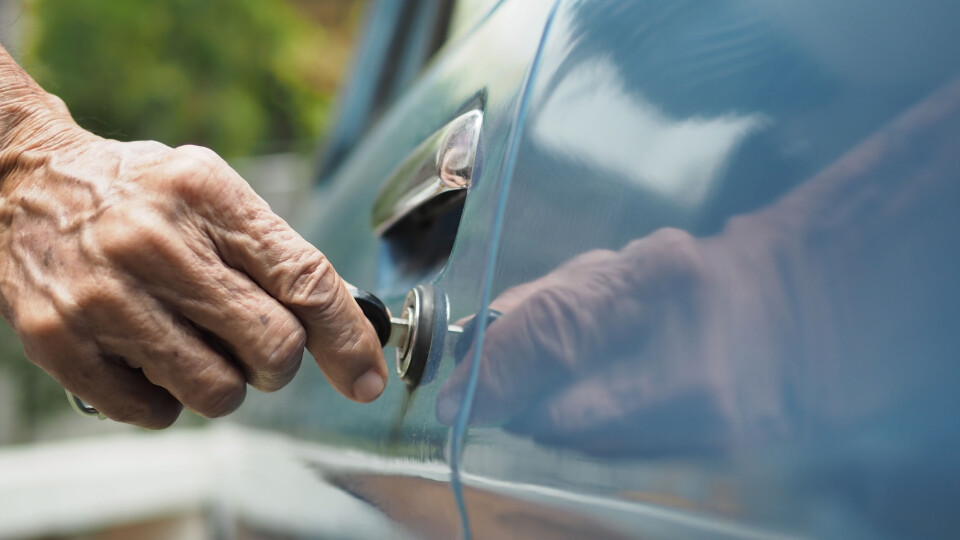-
French rail strike: no disruption to TGVs but local Occitanie and Paris routes impacted
Unions are calling on workers to walk out as negotiations with management begin
-
French farmer protests: renewed road blockades and demonstrations as Mercosur anger remains
Farmers from all unions are protesting, with new action including truck inspections at Le Havre port and on motorways
-
Six skiers, including a Briton, die in French Alps after weekend avalanches
Separate incidents saw off-piste skiers buried in snow and hurled against trees
Mixed bag as our readers respond to debate on tests for older drivers
A crash in northern France has reignited a debate about whether older drivers should have medical tests to ensure they are safe to drive

After the reignition of a debate over whether elderly drivers should be subject to medical exams to keep their licences, we asked Connexion readers their thoughts on the issue.
The question re-emerged after an accident in northern France last Saturday (April 22).
A 76-year-old driver reportedly mistook the brake for the accelerator pedal and the vehicle he was driving ploughed into a crowd in Berck (Pas-de-Calais). A dozen people were hurt in the incident, including a woman who was left with life-threatening injuries.
The topic is hotly debated in France, which, unlike some other European countries, does not insist on drivers taking medical tests to ensure they are fit to keep driving.
Your feedback on the issue was a mixed bag. Here is a selection.
Strong support for tests
Overall, the majority of respondents were in favour of implementing some kind of test – even elderly drivers themselves.
“I am 83 and don’t appear to have any condition which would cause me to be a problem - or even dangerous on the roads,” said G.T., who regularly uses his car.
“I would have no objection to having a medical examination for sight, reaction speed, and heart problems,” he added, highlighting the main tests that campaigners seek as part of changes.
“Clearly, ageing does not improve any of those issues,” he said.
“Of course France should introduce medical check-ups for elderly drivers,” said R.M., citing his own family as an example of why he believes they are important.
“My father, a good driver when younger, had progressively more accidents in his eighties, though he was driving much less,” he added.
He believes the tests are not just to protect people from elderly drivers, but also to protect the elderly from some of the dangerous riders on French roads.
He says where he lives (Corrèze) there are a number of dangerous drivers on the road, and their speed and recklessness could cause an accident involving elderly people that is ultimately not the fault of the older driver.
A.H. also agreed but to a lesser extent.
“A sight test would be useful for the elderly as many old people have sight problems but do not address them properly,” she said.
Read more: France wants to make €100-a-month electric cars a reality
‘Drink driving is a worse offence’
Our original article highlighted comments from the Société Française de Gériatrie et Gérontologie (French Society of Geriatrics and Gerontology, SCGG), which claim more accidents are caused by drunk drivers or speeding than by the elderly.
Many readers agreed with this, believing the priority for the government is stopping drink-drivers instead of elderly ones.
Despite her support for eye tests, A.H. did not think elderly drivers are the biggest problem.
“Personally I think speeding and drunk driving are much worse offenders,” she said.
“I live in a rural area and perhaps [drunk and speeding] drivers think they won't be caught,” she added, after spotting a number of them nearby.
And it is not only drivers of four-wheeled vehicles who our readers believe should face stricter punishments.
“Older drivers on the whole are more careful and obedient to the speed limits. [The government should] try fining motorcyclists who have no respect for speed limits or anyone else on the road!” said H.C.
“Much needs to be done to eliminate drink-driving (and drug-driving),” adds R.M.
“Careless speeding does cause accidents… though with the plethora of speed change signs on French roads it is very difficult [to know the rules],” he added, echoing a number of complaints about France’s ever-changing speed limits in departments.
Read more: How to keep track of changing speed limits on French secondary roads
Cars help combat isolation
The SCGG also claims owning a vehicle can help elderly people overcome isolation, and one of our readers agreed.
“I am elderly and isolated… without my car, how am I supposed to get food?” queried N.B.
“I would be perfectly happy to do a test,” said J.S., who mostly uses his car for short local journeys – a trend amongst elderly drivers not matched by their younger counterparts who use their cars for much longer journeys.
“When I do a longer drive … There is much more traffic, but wider roads. I just have to concentrate more to ensure I can safely handle the driving conditions,” he added, showing prudence is key for the 83-year-old.
Your view
Do you agree with the responses? What is the priority for France to focus on when it comes to road safety?
Let us know via news@connexionfrance.com. Thank you!
Related articles
Drivers in France may no longer lose points for low-level speeding
French roads ‘will be deadlier’ when speeding penalties eased
























